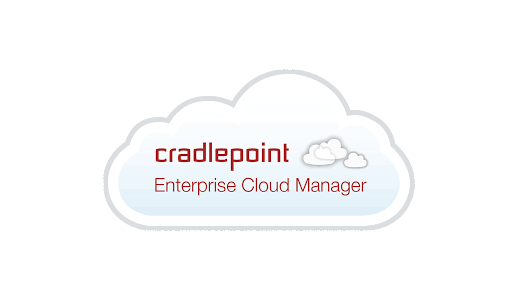Frequently I’m asked while at customer sites why I work for a partner and not directly for a vendor or corporation so I thought it would make an interesting blog discussion. I’ve worked in the EDU, Manufacturing, and Corporate space prior to working for partners so I’ve had a little taste of some of the other areas to see what I like and don’t like. I’m looking forward to your comments as well on the matter, so let’s get started.
Corporate
When I look at what goes on in a corporate environment for someone like me that thrives on ever changing challenges I always felt that I wasn’t being pushed to my limits. I would maintain the same servers day in and day out, patch Tuesday would come and go and I knew what I was going to be doing. I would be patching those servers once again during my tiny maintenance window. The technology for me wasn’t changing much, I was pushed to learn a new product maybe once every 6 months. For the most part if you’ve seen 1 Windows server you’ve seen them all. There were some aspects though that I never fully learned such as Exchange and the deep dark innards of multiple domains inside a forest for example. I also saw the opportunity to attend training events like Cisco Live as something that just wasn’t in the budget nor was training really. What I did like though from corporate America was the fact that for the most part I knew what my hours were, it was M-F 8-5 typically, very little travel involved, so it was easy to plan activities with the family.
VAR (Value Add Reseller)
Ok let me start off this one first of all is the fact that we, as employees of VARs, really need to remember what the heck the VA stand for! We are not just a seller of a product, we add value to the sale of a product. We are the experts, the ones that should know better when the customer asks us to do something crazy. Ok, rant off, back on topic! Working for a partner for the past 6 years I’ve learned a ton, and I mean a ton. The challenge is always there, I’m constantly having to push myself. Although it might be the same style of deployment (a controller, few APs, some voice, etc) there is always some curve ball that gets thrown your way and you have to work around. I’m pushed by my peers to learn more and better understand technologies, even if it isn’t my core technology, I still need to know enough to help them when they need it. Working for a partner has opened up my network as well by allowing me to attend certain events such as Cisco Partner VT’s where you get together with the business unit and other partners from around the country (sometimes world) to learn about the upcoming products, issues with the current line, and collaborate. I’ve always said it, we might be competing but we are all in this together, either we all succeed or no one does. The relationship that this has allowed me to create with Cisco has opened up many doors and helped me create life long allies that I know I can trust to help me if I get stuck. At the end of the day the thing I like the most is when a customer realizes that I am living up to that “Value Add” portion of the purchase. They see my expertise and war wounds from going through a similar install with other customers and I can let them learn from past mistakes/issues that cost us in the end.
Vendor
Time for the vendor, the gradual next step for most from the VAR world as it seems. Now I haven’t personally worked for a vendor directly so my opinion here is based on what I feel happens when you go to a vendor. Typically if you work for a vendor you are drunk on their kool-aid to the point of no return, you have to be. If you were caught saying something great about a competitors product that could be a huge PR issue. I know this is going to come as shock to some but I don’t bleed Cisco, I go with what technology fits the solution needed. I love Cisco’s controller based solution, I think it is a highly efficient solution that for me is easy to configure, but their autonomous stinks. Aruba has an awesome autonomous-like setup with their Instant AP, if you haven’t looked at it please do. Aerohive is making strides with their branch and teleworker solutions, I usually always travel with either my BR100 or BR200. Meraki (now owned by Cisco) has an amazing ease of use that no one comes close to touching. Ruckus has an insanely talented antenna team, I love listening to them and having my brain melt from the physics that Victor Shtrom starts flowing, and he does it so effortlessly! I would have a hard time working for a vendor knowing that I would have to sort of look the other way when a customer is looking at a solution that I know would actually be the better fit. I would have a hard time trying to shoehorn vendor X into that sale and knowing the customer would be happy. Working for a vendor also means no more Tech Field Day events which I’ve found to be another great source of networking. The ability to meet all of the CEO’s and other amazing team members from these vendors has given me more “phone a friend” cards in my Rolodex for when I need something.
Final Thoughts
Ultimately you can see why I have stayed in a partner space. The flexibility and ever changing environment it allows me to work in is great. The downside? Travel. Depending on the size of the partner you work for you will either be local with minimal travel or have national accounts with 80-100% travel which is where I sit today. The burden on my family is tough while I’m traveling so we’ll see how much longer it lasts! One final comment on this subject is pay, hence the title of this post. You need to work where you feel you are being paid what you are worth. Being 1 of less than 200 (estimated) CCIE Certified Wireless Engineers is a big deal for me, it gives me a nice Ace in my card deck. It’s worth more to a partner than it is to a vendor or corporation. That number gives the partner special perks so hopefully you are compensated as such to reflect that. In the end do what makes you happy, work for who you want to that makes it not feel like work. If that means you go to a vendor for a few years to get an inside look and then go back to a partner, do it. If you are at a point in your life where you don’t want to have to learn new products every 3 months, cozy up in a cube and make your mark there. If you are still reading this, maybe taking a chance and starting your own business is the right idea as well! I would love to simply be a technical architect consulting with others and helping them navigate the plethora of options, doesn’t matter what vendor it is.




I work for a vendor and it is actually encouraged to say what is good/great about the competition.
As for vendor bias, I find it very often with the VARs that are drinking cool-aid.
Just to add. Aruba instant is not autonomous. It is a controller based architecture with the controller being virtualized (automatically on deployment) on one of the APs.
Good post as ever.
Having worked at all three of your examples, I’d have to agree with your assessments. I too have made the same decision and run my own Wireless LAN VAR so I can have the best of all options.
Great post!
I liked working for Corporations and Government. I made a good run of both.
I enjoy being my own VAR as Keith has mentioned. I think I work too much while in this capacity given my own bad habits of never knowing when to stop.
I like the Vendor option whereby the multi-billion dollar support infrastructure is in place to support a full career.
To each his own. I love your take on paying the bills and synopsis.
My compliments.